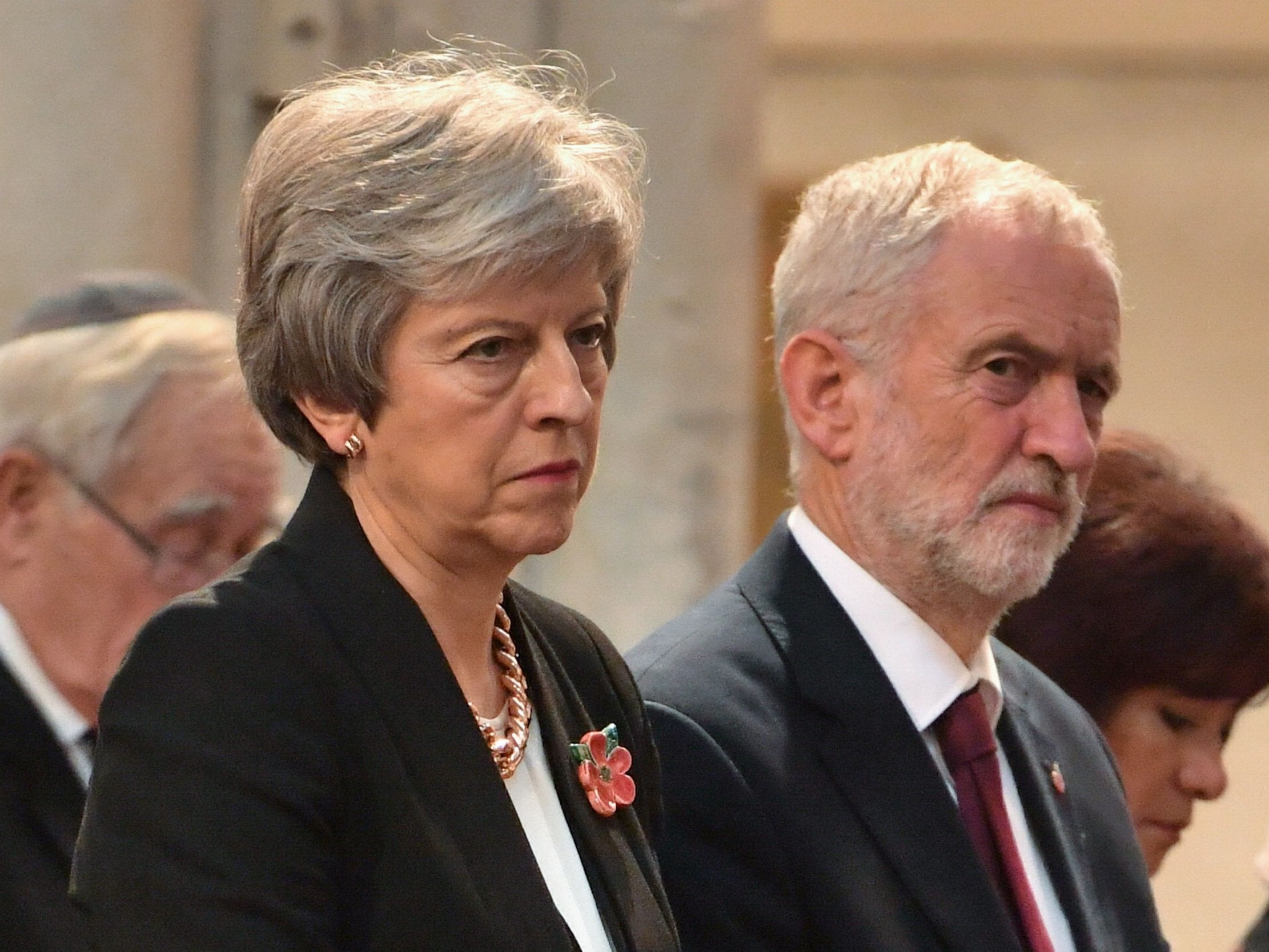The real reason May wants a TV debate with Corbyn? To remind Tory MPs who their enemy is
If she came out on top, it would underline her message to her MPs that the political crisis that would follow a Commons defeat could lead to a general election and a Labour government


A prime minister rushing to all corners of the nation as it prepares for the big vote. MPs in a feverish state. A dispute between political parties over TV debates. It feels like we’re in a general election campaign.
There’s only one thing missing – people don’t have a vote, when they should have the Final Say in a referendum on Theresa May’s Brexit deal. Her proposal for a set piece TV clash with Jeremy Corbyn is strange. When I first heard about it, I told friends it would never happen because politicians and broadcasters would never agree on the format. My scepticism stemmed from spending many hours talking to spin doctors who assured me their party really wanted election debates to happen, but because they were ahead in the opinion polls they didn’t really want to take the risk. So they invented obstacles, such as the involvement of smaller parties or playing one broadcaster off against another.
Inevitably, it usually suits one main party more than the other to have a debate that could be a game-changer. As John Major once put it: “Every party politician that expects to lose tries that trick of debates and every politician who expects to win says no.”
It’s often an opposition leader seeking a leg-up to an equal footing as a prime minister. But not always. Major, then prime minister, challenged Tony Blair to debates in 1997. Labour was miles ahead and so, while not admitting it, found excuses and so debates didn’t happen. “We played games in the negotiations; we never intended to risk debates,” one Labour spinner told me later.
Such games lasted from 1964 until our first leaders’ debates in 2010. Although they dominated the campaign, that sadly didn’t make them permanent. May now regrets dodging debates with Corbyn at last year’s election; running away was hardly “strong and stable”.
The tables are now turned. May is desperate for a TV debate with Corbyn ahead of the crunch Commons vote on Brexit on 11 December. With an estimated 100 Tory MPs opposing her deal, she faces a humiliating defeat and must limit its scale, or her agreement will be dead and she might even be forced out. So she’s throwing the kitchen sink at it. A debate carries some risk: if she did badly, it might encourage even more Tory MPs to vote against her deal, or force a vote of confidence in her as party leader after the Commons vote. But she’s already fighting for survival, and so has little to lose.
Officially, May wants a debate in the hope the public will support her deal and put pressure on MPs to do likewise. I can’t imagine many constituents bothering to write to their MP on the issue, though the chairs of local Tory associations might. Presumably, she hopes the polls turn in favour of the deal. However, her real target audience is Tory MPs. By going up against Corbyn, she would remind them who the enemy is. If she came out on top, it would underline her message to her MPs that the political crisis that would follow a Commons defeat could lead to a general election and a Corbyn government. The old maxim about loyalty being the Conservative Party’s secret weapon is true. However much they hate her deal, some Tories might be turned.
A debate should happen but might not. True to form, the two parties are arguing about the format and rival broadcasters competing for the 9 December programme, amid headlines about Strictly, I’m a Celebrity and Sir David Attenborough’s Dynasties. Smaller parties, the People’s Vote campaign and Eurosceptics demand to appear on the show, noting the irony of May, a Remainer proposing Brexit, versus Corbyn, a Eurosceptic representing Remain (well, sort of). But their complaints are likely to be rebuffed because broadcasters are not governed by the strict rules on balance that apply at elections.
May favours the BBC’s proposal, which includes a panel of experts. It would keep the focus on Brexit, allowing her to show her grasp of the 585-page withdrawal agreement and mock Corbyn for unwisely admitting he hadn’t read it. Corbyn favours ITV’s plan for a head-to-head, hoping to widen the debate to the future of the country – austerity, public services and the economy. Perfectly reasonable. If no agreement is reached, the two leaders might appear separately in two programmes, but that would hardly encourage people to disrupt their Sunday evening, and would be a missed opportunity to engage them.
Again, politicians squabble about the ground rules and try to gain advantage. It strengthens the case for such debates to be handed over to an independent commission, as Sky News is proposing. After writing this, I’ve decided to sign its petition.
The government’s feeble response is: “Televised election debates are a matter for political parties.” Not good enough. It’s time for change.
Join our commenting forum
Join thought-provoking conversations, follow other Independent readers and see their replies
Comments
Bookmark popover
Removed from bookmarks